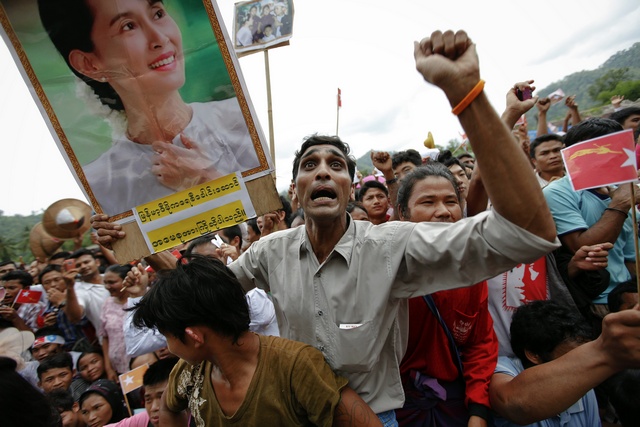A planned visit by Burmese State Counsellor Aung San Suu Kyi to the Tham Hin refugee camp on the Thai-Burmese border has been cancelled, according to local authorities.
Suu Kyi arrives in Thailand’s capital Bangkok today and was expected to visit Tham Hin, home to more than 6,000 refugees who had fled civil war in southeast Burma, on Saturday.
“Thai authorities informed us yesterday that it has been cancelled but we were given no other information,” Sally Thompson, the director of The Border Consortium, which manages distribution of aid to camps on the Thai-Burmese border, told DVB on Thursday.
Refugee advocacy networks say it will be a lost opportunity for Suu Kyi, who could have met with refugees and camp leaders to discuss their return to Burma.
Thompson says refugees want to discuss the peace process and conditions in military-occupied areas that still surround their homes in Karen and Mon states and Tenasserim Division.
“They are looking at the removal of troops, because essentially they are still in the villages where these people fled from, [as well as] demarcation of landmines, allocation of land and all the issues around security of land tenure,” she said.
One of the biggest issues for refugees hoping to return home is that land they previously used for farming is under discussion for commercial ventures.
In Karen State, the planned Hatgyi 1,360-MW hydropower dam will impact 41 Karen indigenous villages. Most villagers in the affected area earn their living from farming, including terrace rice cultivation, vegetable growing, fruit orchards, rotational farming and fishing in the Salween River.
[related]
“If refugees are to go back and their return is to be sustainable, then there needs to be access to livelihoods and access to services,” said Thompson.
She adds that when refugees return to their villages the government needs to integrate ethnic education and health systems into the public system.
“It is not about being replaced with a government system. [Ethnic health and education services] basically need to be embraced and strengthened so that they can support the overall delivery of health and education in the country,” she said.
There are currently more than 100,000 refugees from Burma living in nine camps along the country’s border with Thailand.



